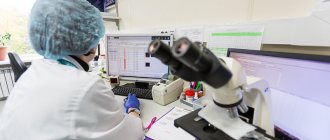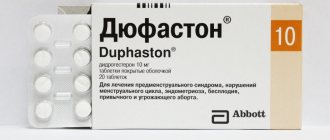The problem of iodine deficiency in the body is global. A third of all people in the world are at risk of iodine deficiency in their bodies.
At maximum risk are:
- Pregnant women.
- People who live in countries where the soil contains very little iodine. These are the countries of South Asia, Southeast Asia, New Zealand and European countries.
- People who do not use iodized salt.
- Vegetarians and vegans.
Iodine is one of the important minerals for a woman’s body. This macroelement is a building material for thyroid hormones, and, consequently, for its proper functioning.
Thyroid hormones help control cell growth, repair damaged cells, and support a healthy metabolism.
Lack of iodine can cause unpleasant and even serious symptoms. Among them: swelling of the neck, worsening pregnancy conditions, weight gain and learning difficulties.
Signs of iodine deficiency in the body are very similar to symptoms of hypothyroidism or low levels of the thyroid hormones TSH, T3 and T4. Because iodine is used to make thyroid hormones, iodine deficiency means that thyroid hormone levels will be low, leading to hypothyroidism.
Iodine is especially important for women's health. The danger of a lack of this microelement affects the function of the thyroid gland, which provides women with beautiful smooth skin, sparkle in the eyes, and strong thick hair. In addition, a woman’s entire hormonal system is tied to the functions of the thyroid gland.
The information in this article is based on serious scientific research from the US National Academy of Medicine, which you can read for yourself here.
Beneficial properties of iodine and its effect on the body
Did you know that iodine deficiency is currently considered by the World Health Organization (WHO) to be the most common and easily preventable cognitive impairment in children in the world? There are at least 30 million people suffering from this preventable disease.
Iodine is a trace element and an important component of the thyroid hormones, triiodothyronine (T3) and thyroxine (T4). These hormones regulate the metabolic activities of most cells and play a vital role in the early growth and development of most organs, especially the brain. Insufficient intake of iodine-rich foods can lead to insufficient production of these hormones, which negatively affects the muscles, heart, liver, kidneys and developing brain.
https://www.who.int/nutrition/topics/idd/en/
Iodine deficiency statistics speak for themselves
:
- The National Health Nutrition Examination Survey found that iodine levels have decreased by 50 percent over the past 30 years.
- More than 96 percent of the more than 5,000 patients studied were iodine deficient in a clinical study conducted by thyroid expert Dr. David Brownstein.
- According to WHO, iodine deficiency affects 72% of the world's population.
- In 2011, 70 percent of households worldwide had access to iodized salt.
https://www.who.int/bulletin/volumes/94/2/15-160036/en/
Iodine as a chemical element was discovered in France by Bernard Courtois at the beginning of the 19th century. In the periodic system of Mendeleev, it is designated by the letter “I” and assigned atomic number 53. In its pure form, under normal conditions, iodine is represented by crystals with a color ranging from dark gray to blue. It is poorly soluble in water; organic solvents are used for its solutions, in which iodine acquires a rich brown or purple color. It is not surprising that the name “iodine” itself translated from Greek means purple or violet. Iodine is not found in isolated deposits in nature, but is distributed everywhere in small quantities. To extract iodine, its compounds, salts rich in iodine, are used, from where it is isolated chemically. The human body is not able to synthesize iodine on its own, so it must come from the environment with food and water.
Iodine is a truly essential micronutrient in our diet and plays an important role in normal growth and development. Unfortunately, iodine deficiency is a serious public health problem worldwide. It affects 2 billion people worldwide and its prevalence is increasing, especially among teenage girls and pregnant women.
https://pubmed.ncbi.nlm.nih.gov/18053280/
Iodine is especially important for the functioning of the thyroid gland, as it is involved in the synthesis of two thyroid hormones, T3 and T4. They play an important role in regulating metabolism, growth and development, and the development of the central nervous system and brain in fetuses and children.
https://www.ncbi.nlm.nih.gov/pmc/articles/PMC3119440/, https://pubmed.ncbi.nlm.nih.gov/18053280/
Consuming dietary iodine is essential for the production of thyroid hormone. The consequences of iodine deficiency include
:
- goiter;
- intellectual disabilities;
- growth retardation;
- neonatal hypothyroidism;
- and increased risks of miscarriage and infant mortality.
In 1990, the United Nations World Meeting set the goal of eliminating iodine deficiency worldwide. Since then, significant progress has been made, mainly due to universal salt iodization programs. Approximately 70% of all households worldwide now have access to iodized salt.
In 2013, according to national or subnational median urinary iodine concentrations of 100–299 µg/L in school-age children, 111 countries have adequate iodine intake. Thirty countries remain iodine deficient. Ten countries have excess iodine consumption.
Therefore, despite significant progress made over the past few decades, iodine deficiency remains a serious health problem worldwide, affecting both industrialized and developing countries. Ongoing monitoring of the population's iodine status remains critical, and special attention needs to be paid to monitoring the status of vulnerable populations such as pregnant women and infants. There is also a need for continuous monitoring of iodized salt and other sources of dietary iodine to prevent over-as well as under-nutrition of iodine.
Iodine is present throughout the body in almost every organ and tissue and is needed by virtually every body system to keep us alive and energized. For this reason, iodine deficiency poses many health risks. This is why it is so important to regularly include iodine-rich foods in your diet.
We recommend
“Water in food: effects on the body, weight loss” Read more
Iodine is a truly essential mineral that is supplied to the body through iodine-rich foods, including certain salts (“iodized salt”), eggs, sea vegetables, fish, legumes and other foods. It occurs naturally in mineral-rich soils as well as in ocean water.
Iodine present in foods and iodized salt contains several chemical forms of iodine, including sodium and potassium salts, inorganic iodine (I2), iodate, and iodide.
As we've already discussed, iodine is needed to create thyroxine (T4 hormone) and triiodothyronine (T3), the two main hormones produced by the thyroid gland that control many important functions in the body.
Health Benefits of Iodine
- Supports Thyroid Health
The thyroid gland must have high enough levels of iodine to produce key hormones, including thyroxine. Thyroid hormones regulate many important biochemical reactions every day. Some of the most important include
:
- synthesis of amino acids from proteins,
- activity of digestive enzymes,
- proper development of the skeleton and central nervous system.
- May help prevent cancer
Iodine can improve immunity and help induce apoptosis - the self-destruction of dangerous cancer cells. Although it can help destroy mutated cancer cells, it does not destroy healthy cells in the process.
For example, evidence suggests the ability of iodine-rich seaweeds to suppress the development of certain types of breast tumors. This is supported by the relatively low rates of breast cancer in parts of the world such as Japan, where women consume a diet high in seaweed.
We recommend
“Healthy food: delicious and healthy recipes for every day, the basics of proper nutrition” Read more
Certain types of iodine therapy are also sometimes used to treat thyroid cancer.
- Supports the growth and development of children.
Iodine is especially important in the early stages of development, as fetal brain tissue and thyroid receptors are extremely dependent on this mineral for their normal formation.
Research shows that iodine deficiency during pregnancy and infancy can impair healthy growth and brain development. Infants with iodine deficiency are more likely to die and have a higher risk of neurodegenerative problems such as cretinism, low growth rate, motor problems and learning disabilities.
Although doctors routinely test women during pregnancy for iodine deficiency, it is difficult to get an accurate reading of iodine levels. As such, many health experts are now urging women to increase their intake of iodine-containing foods in their diet during pregnancy and supplement with iodine as needed. Considering how common iodine deficiency is, this recommendation should really be taken seriously.
Study
: Iodine as Essential Nutrient during the First 1000 Days of Life, Iodine, Iodine metabolism and Iodine deficiency disorders revisited, Iodine supplementation for preventing iodine deficiency disorders in children
- Supports Healthy Brain Function
Research shows that iodine plays a role in healthy brain development and ongoing cognitive abilities - which is why iodine deficiency is one of the most common preventable causes of mental disorders in the world, as well as neurodegenerative disorders, according to experts.
Study
: The disorders induced by iodine deficiency, Iodine consumption and cognitive performance: Confirmation of adequate consumption
- Keeps skin healthy and fights infections.
One common sign of iodine deficiency is dry, rough and irritated skin that becomes flaky and inflamed. This mineral also helps regulate sweating, so people may experience changes in how much they sweat if their iodine levels become unbalanced.
Another benefit: Iodine can potentially help treat minor infections, such as those that form in scratches, as it has natural antibacterial properties.
- Helps control sweating and body temperature.
Sweating is an important detoxification method that the body uses to remove toxins. Iodine deficiency can disrupt this natural way we remove waste from the body through our pores and control our body temperature.
Similar to the ability to produce sufficient sweat, iodine deficiency can also cause dry mouth due to abnormally low saliva production. This makes it difficult to enjoy food and may impair digestion to some extent.
Study
: Denis Wilson, md: Low Body Temperature as an Indicator for Poor Expression of Thyroid Hormone, Salivary Gland Function 5 Years After Radioactive Iodine Ablation in Patients with Differentiated Thyroid Cancer: Direct Comparison of Pre- and Postablation Scintigraphies and Their Relation to Xerostomia Symptoms
When thyroid disorders such as hypothyroidism occur due to a diet low in iodine, symptoms can range from decreased metabolism to heart complications, changes in appetite and body temperature, changes in thirst levels and sweating, weight fluctuations and mood changes.
Additionally, getting enough of this mineral is also important to prevent goiter or enlarged thyroid gland.
Treatment
The treatment process comes down to replenishing the deficiency of this element. There are several ways to do this:
- Follow a special diet. It is recommended to include seaweed, ocean and sea fish, and other foods that contain a lot of iodine in your diet.
- Take medications that help increase the amount of iodine (Iodomarin, Iodbalan, Potassium Iodite, Alphabet, Vitrum, Multitabs).
- There is honey and green walnuts.
Iodine is well absorbed if the body gets enough protein, calcium, iron and zinc. Therefore, to prevent iodine deficiency, it is necessary to monitor your diet. Also, as a preventative measure, it is necessary to undergo a medical examination at least once a year. This will allow us to identify abnormalities at an early stage in order to prescribe an effective treatment plan using gentle drugs.
You can get a doctor’s consultation at our endocrinology center in Samara by sending an online application from the website or by calling. Be healthy!
Iodine requirement per day
For people over 12 years of age, the recommended iodine requirement is 150 mcg per day.
For pregnant and lactating women, the recommended iodine requirement is 150-250 mcg per day. This increase during pregnancy and breastfeeding should help increase the production of thyroid hormones in the fetus or baby, counterbalance any potential losses from the mother, and supply the fetus with iodine so that it can produce its own thyroid hormones.
https://www.who.int/nutrition/publications/micronutrients/iodine_deficiency/9789241595827/en/
What is iodine deficiency
This is the general name for diseases associated with a lack of iodine in the thyroid gland. There are four main diseases that arise against this background:
- Diffuse endemic goiter.
- Focal changes in the thyroid gland.
- Thyroid nodules.
- Functional anatomy.
It is worth considering the symptoms in order to detect the problem in a timely manner and consult a doctor. At an early stage, the disease can be cured much easier, preventing the development of a tumor.
Foods High in Iodine
Surely, you are wondering how to increase your iodine level? The best way to maintain normal iodine status is to eat foods high in iodine.
Seaweeds are one of the best dietary sources of iodine, but their iodine content is highly variable. Examples include arame, kombu, wakame, kelp, and hijiki. Kelp contains the highest amount of iodine of any food in the world.
Other good sources of iodine include
:
- seafood;
- dairy products (usually due to the use of iodine feed additives and iodoform disinfectants in the dairy industry);
- eggs.
The iodine content of vegetables and fruits varies depending on the iodine content of the soil, irrigation methods and fertilizers used. The iodine concentration in plants can vary from 10 µg/kg to 1 mg/kg dry weight. This variability affects the iodine content of animal products and meats because it affects the iodine content of the foods that animals consume.
https://ods.od.nih.gov/factsheets/Iodine-HealthProfessional/#en5
| Product | Iodine content per 100 g of product, (in mcg) | Daily requirement (%) |
| Sea kale | 300 | 200 |
| Squid | 200 | 133 |
| Cod | 135 | 90 |
| Shrimp | 110 | 73 |
| Egg powder | 64 | 43 |
| Sea bass | 60 | 40 |
| Low-fat dry milk | 55 | 37 |
| Vobla | 50 | 33 |
| Pink salmon | 50 | 33 |
| Flounder | 50 | 33 |
| Chum salmon | 50 | 33 |
| Atlantic salmon | 50 | 33 |
| Tuna | 50 | 33 |
| Turkey breast (baked) | 35 | 23 |
Diagnostics
Initially, you can do the test at home. You will need to draw three stripes of different lengths on your hand with iodine. If the shortest one disappears after 3 hours, then a small deficiency is present. If all the stripes disappear, then the element is missing in large quantities. This is not a professional diagnosis, but it allows you to understand whether a person has problems.
The doctor must examine the thyroid gland by visual examination and palpation, determining the size of the nodes. A survey is also administered to examine the presence of symptoms. Hardware diagnostics using ultrasound will also be required. Normally, the thyroid gland should be up to 4 cm in length, up to 1.5 cm in thickness and up to 2 cm in width. If there is a tumor in the tissues, various compactions can be detected.
If there is a suspicion of oncology, then a biopsy is required and the sample is checked during histological examination. In half of the cases, women also have breast problems due to iodine deficiency, so it is recommended to have a mammogram or ultrasound of the breast.
Products low in iodine
Some thyroid diseases require an iodine-free diet. This means you need to select products that either do not contain this element at all or contain it in minimal quantities.
Products that do not contain iodine
:
| Fruits (fresh) | Bananas, grapefruits, oranges, tangerines, seedless apples, pears, currants |
| Vegetables raw, freshly prepared, frozen (no salt) | Everything except potatoes with skins, soybeans, beans: variegated, lima, navy, red, wingu |
| Nuts (no salt) | Peanuts, almonds, nut butter (no salt) |
| Seasonings | Dried and raw herbs, as well as black pepper |
| Beverages | All types of coffee, tea, beer, wine and other alcoholic beverages |
| Egg whites, as well as products of its processing | Protein omelet, meringue, meringue, etc. |
| Vegetable oils | All |
| Juices (freshly squeezed) | All except maraschino cherry and rhubarb pressed |
Products poor in iodine
:
| Product type | Product | Iodine content in products, mcg per 100 g of product |
| Fresh meat | Pork | 3-16 |
| Beef | 3-7 | |
| Chicken | 6 | |
| Veal | 3 | |
| Beef liver | 6 | |
| Cereals | Wheat flour | To 10 |
| Buckwheat | 3,5 | |
| Vegetables | Beet | 6,8 |
| cucumbers | 3-8 | |
| Carrot | 6,8 | |
| Cabbage | 6,5 | |
| Potatoes without skin | 3-5 | |
| Tomato | 6 | |
| Fruits | Apples, pears, peaches, apricots, plums, citrus fruits | 2 |
Symptoms, causes and consequences of iodine deficiency
It is estimated that around 2 billion people worldwide suffer from insufficient iodine intake, although many are unaware of this because they do not notice obvious symptoms. The populations of South Asia and sub-Saharan Africa are particularly affected by this problem. In the US and Europe, shortages are believed to be growing.
Common signs of iodine deficiency include:
- Problems with saliva production and proper digestion of food
- Swollen salivary glands and dry mouth
- Skin problems, including dry skin
- Poor concentration and difficulty remembering information
- Muscle pain and weakness
- Increased risk of developing thyroid disease
- Increased risk of developing fibrosis and fibromyalgia
- Higher risk of developing problems in infants and children
Clinical signs and symptoms of iodine deficiency:
- Depression
- Difficulty losing weight
- Dry skin
- Headache
- Lethargy or fatigue
- Memory problems
- Menstrual problems
- Hyperlipidemia
- Recurrent infections
- Sensitivity to cold
- Cold hands and feet
- Brain fog
- Thinning hair
- Constipation
- Dyspnea
- Renal dysfunction
- Muscle weakness and joint stiffness
*According to The Clinician's Handbook of Natural Medicine.
Although excess iodine is a potential risk for thyroid dysfunction, it is much less common and is considered a relatively minor risk compared to the significant risks of deficiency. In addition, consuming very large doses of iodine from foods on its own is very unlikely.
Due to the high prevalence of iodine deficiency throughout the world, and the resulting serious health problems, there is much more emphasis in the medical community on adding more of this mineral to a person's diet than on worrying about reducing it.
Why are more and more people experiencing iodine deficiency?
There are several reasons
:
- Reducing iodine intake from food.
Unlike nutrients such as calcium, iron or vitamins, iodine is not found naturally in certain foods; rather, it is present in the soil and absorbed through foods grown in that soil.
Iodine is obtained primarily through diet, but it can also be obtained from supplements. Higher levels of exposure to certain chemicals found in processed foods unfortunately reduce iodine absorption.
We recommend
“Vitamins for colds: why take them and their benefits for the body” Read more
For example, bromine, found in many commercially packaged foods, has been reported by researchers to affect the absorption of iodine from foods to varying degrees. Bromine can displace iodine and can lead to higher rates of iodine deficiency.
- Depletion of iodine contained in soils.
When it comes to soil depletion, research indicates that soils around the world contain varying amounts of iodine, which in turn affects the amount of this mineral in crops. In some areas, soils deficient in minerals are more common, making people more likely to develop deficiencies.
Efforts to reduce deficiency, known as “salt iodization programs,” are helping to reduce deficiency levels in some parts of the poor world where there are high rates of negative health effects. But the surest way to prevent deficiency (and the safest) is to increase your intake of iodine-rich foods.
Risk factors for iodine deficiency
- Selenium deficiency
Iodine deficiency combined with selenium deficiency can lead to thyroid imbalance. One of the most serious manifestations of thyroid imbalance is goiter. Research has shown that many people diagnosed with iodine deficiency also have selenium deficiency. The thyroid gland needs both selenium and iodine to produce adequate levels of hormones, but when there is a deficiency of one or both, it results in low thyroid hormone levels. This is why adequate levels of iodine are necessary for adequate thyroid function.
Iodine is known to play a vital role in thyroid health, while selenium is critical for iodine utilization. When selenium levels are low, the thyroid gland will work harder to produce thyroid hormones, and the body will have difficulty changing these hormones into forms used by cells. Therefore, it is important to correct both of these deficiencies to restore thyroid health.
- Pregnancy
About a third of pregnant women in the United States are iodine deficient, according to the journal Pediatrics. Currently, only 15 percent of breastfeeding and pregnant women take iodine supplements.
Additional iodine is usually in the form of sodium or potassium iodide. Severe iodine deficiency is associated with delayed mental and physical growth, and even mild iodine deficiency can impair brain function in infants. The supplement must include at least 150 mcg of iodide and use iodized table salt. Combined supplement and food intake should range from 290 to 1,100 micrograms per day.
https://www.webmd.com/vitamins/ai/ingredientmono-35/iodine
- Tobacco smoke
Tobacco smoke contains a compound called thiocyanate. The inhibitory effect of thiocyanate on iodide uptake occurs through competitive inhibition of the iodide transport mechanism and may be responsible for the reduction in iodide levels. Other substances in tobacco smoke that can interfere with thyroid function include metabolites of hydroxypyridine, nicotine, and benzopyrenes. Tobacco smoke not only affects thyroid function, but can also block the action of thyroid hormones.
https://pubmed.ncbi.nlm.nih.gov/7833671/
- Fluoridated and chlorinated water
Tap water contains fluoride and chlorine, which inhibit iodine absorption. In the study, researchers used the Wechsler Intelligence Test to determine the IQ of a total of 329 children aged eight to 14 living in nine high-fluoride, low-iodine villages and seven low-iodine villages. As it turned out, the IQ of children from high-fluoridated, low-iodine villages was lower than that of children from low-iodine villages.
- Goitrogens
Eating raw cruciferous vegetables (cauliflower, broccoli, cabbage, Brussels sprouts) can affect thyroid function as they contain goitrogens, substances that suppress the thyroid gland by interfering with the production of hormones. People with iodine deficiency are at risk when consuming these foods.
https://pubmed.ncbi.nlm.nih.gov/8675242/
We recommend
“Vitamins for vigor: how to take them correctly and their daily dosage” Read more
Iodine supplements and dosages
Low iodine status and low-iodine diets are associated with an increased risk of thyroid disease, but there are also potential thyroid and hormonal risks associated with taking too much iodine, especially from supplements containing it in the iodide form.
Recommended daily dose:
Iodine recommendations are given in terms of “Dietary Reference Intake” (Dri). DRIs were developed by the Food and Nutrition Board of the Institute of Medicine of the National Academies as a set of values used to plan and estimate nutrient intakes of healthy individuals.
According to the USDA, the recommended amount of iodine varies by age and gender as follows:
:
- Birth to 6 months: 110 mcg
- 7-12 months: 130 mcg
- 1-8 years: 90 mcg
- 9-13 years: 120 mcg
- 14 years and older: 150 mcg
- Pregnant women: 220 mcg
- Breastfeeding women: 290 mcg
What is the best way to reach these recommended values? By eating more iodine-rich foods, especially those that naturally contain the mineral and are not fortified with vitamins.
Excess iodine
An iodine overdose of more than 2,000 milligrams can be dangerous, especially in people diagnosed with tuberculosis or kidney disease. Excess iodine can lead to the development of papillary thyroid cancer and hyperthyroidism, rather than prevention. Pregnant women and nursing mothers should be careful not to take iodine except in specifically prescribed doses.
We recommend
“Protein deficiency: symptoms and diagnosis” Read more
As mentioned earlier, excess iodine can lead to thyroid disease as it can potentially cause a goiter on the thyroid gland just like iron deficiency. People with Hashimoto's disease, thyroiditis, or some cases of hypothyroidism should be careful to talk to their doctors and discuss how much iodine they should take.
Symptoms
High iodine intake can cause some of the same symptoms as iodine deficiency, including goiter, elevated TSH levels, and hypothyroidism, because excess iodine in susceptible individuals suppresses thyroid hormone synthesis and thereby increases TSH stimulation, which can cause goiter. Iodine-induced hyperthyroidism can also result from high iodine intake, including iodine supplementation to treat iodine deficiency. Studies have also shown that excessive iodine intake causes thyroiditis and papillary thyroid cancer. Cases of acute iodine poisoning are rare and are usually caused by very large doses. Symptoms of acute poisoning include a burning sensation in the mouth, throat and stomach, fever, abdominal pain, nausea, vomiting, diarrhea, weak pulse and coma.
Reactions to excess iodine and the dose required to cause side effects vary from person to person. Some people, such as people with autoimmune thyroid disease and iodine deficiency, may experience adverse effects when taking iodine that is considered safe in the general population.
For most people, iodine intake from foods and dietary supplements is unlikely to exceed the recommended limit. Long-term intake above the recommended intake increases the risk of adverse health effects.
Are iodine salts and nutritional supplements beneficial?
More than 70 countries, including the United States and Canada, have salt iodization programs for public health purposes, and 70 percent of households worldwide use iodized salt, according to the USDA.
The original purpose of salt iodization was to prevent deficiency, so in the 1920s in the United States, manufacturers began adding iodine to table salt.
The US Food and Drug Administration approves potassium iodide and copper iodide for iodizing salt, and the World Health Organization recommends the use of potassium iodate because of its greater stability.
On average, every eight teaspoon of iodized salt in the United States contains about 45 micrograms of iodine. By law, food manufacturers almost always use non-iodized salt in processed foods and list the salt as iodized in the ingredient list on products that use iodized salt. This is to prevent very high iodine intake, given that most salt intake comes from processed foods.
It is best to use real salt, either Himalayan or Celtic sea salt. Sea salt contains more than 60 micronutrients and does not pose the same risk of excessive iodine intake as table salt. It is also much more natural, healthy and delicious.
Many supplements also contain iodine in the form of potassium iodide or sodium iodide, including many multivitamins. Kelp capsules also contain iodine. They are usually not necessary if sufficiently iodine-rich foods are consumed and may even be dangerous if taken in large quantities. Taking supplements in the recommended daily amount may be beneficial and is considered safe, but dosages should be carefully monitored and efforts should be made to primarily obtain nutrients from food.
Let's summarize the information and outline the main conclusions
:
- Iodine is an essential mineral that enters the body through certain foods and salts. We need it to create thyroxine (T4 hormone) and triiodothyronine (T3), the two main hormones produced by the thyroid gland that control many important functions.
- Unfortunately, many people are deficient in this mineral, which makes consuming foods rich in iodine even more important. Low iodine intake can lead to symptoms such as poor digestion, dry mouth, skin problems, poor concentration, muscle pain, weakness and many others. The best way to safely increase your iodine intake is to regularly include iodine-rich foods such as eggs, seaweed, vegetables, legumes and fish in your diet.
Causes
Doctors identify several reasons for the development of iodine deficiency:
- poor seafood diet;
- refusal of iodized salt when preparing food;
- distance from the sea;
- alcohol abuse;
- smoking;
- uncontrolled use of hormonal drugs by a doctor;
- bad genetics and predisposition.
Important. Iodine can also be supplied in the required amount, but the problem will still exist. This is due to problems of the gastrointestinal tract. That is, the intestines and stomach cannot absorb all the nutrients. Then a deficiency of this element may also occur. But the problem can be corrected by treating the gastrointestinal tract.








